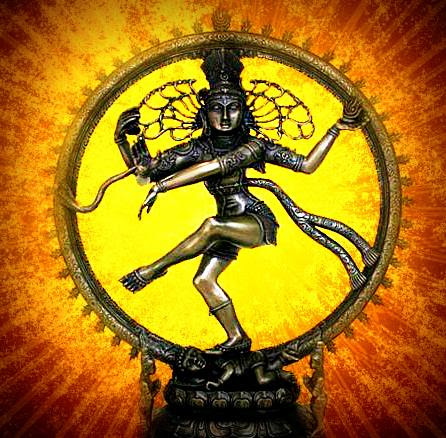
|| तत्वबोध -- 5, 6, 7||
नित्यानित्य वस्तु विवेकः कः |नित्यं वस्तु एकं ब्र्म्ह तद्व्यतिरिक्तं सर्वं अनित्यमेव | अयं एव निथ्य अनित्य वस्तु विवेकः | TB-5 |
Here the student is NOT afraid of asking the guru any question he has because here the ending of the samsAram is being taught by the guru. Then the guru also appreciates the humulity on the part of this student and teaches him the essence of all of our scriptures in the very opening declaration of TB. The student asks what is this vivEkam or discriminative knoledge. The teacher declares that there is ONLY one such discriminative knowledge. That knowledge is that the singly non-dual brmhan is that eternal vasthu. OTHER THAN THAT EVERYTHING IS PERISHABLE.. Then the student continues with his questions. (please understnad that this is not meant for an ordinary student but who has come to a guru for ending samsAram)
विरागः कः| इहस्वर्गादिषु इच्छा राहित्यं |TB-6|
When the student asks what is dispassion, the guru says,"any gain you strive for on planet earth as well as attainment of heaven should NOT be the passion of your life, if you want to end samsAram. So the 'absence os such a desire to accomplish the non-eternal goals" is virAga: or the dispassion necessary to obtain this knowledge.
शमादि षट्क सम्पत्तिः का| शम दम उपरम तितिक्षा श्रद्धा समाधानं चेति |TB-7|
Previously you may remember that the guru simply said the "six-fold gunAs, such as Sama, etc".. So here he "lists" thos 6-fold gunAs and elaborates what those six are in the following as well awaiting the student to ask a question. This also highlights how vEdhantic teachers are. The very statment they make must be relevant, yet the student must be capable of asking the proper question, and then the guru also must be capable of expalining.
(This is also the main reason why I chose to be a vEthantic teaching assistant and NOT A GURU. This also allows me to enjoy the human qualities and fraities like every one of the rest of us.!)
So now it is the student's tunn to ask "शमः कः | मनोनिग्रहः |"
Here the student is NOT afraid of asking the guru any question he has because here the ending of the samsAram is being taught by the guru. Then the guru also appreciates the humulity on the part of this student and teaches him the essence of all of our scriptures in the very opening declaration of TB. The student asks what is this vivEkam or discriminative knoledge. The teacher declares that there is ONLY one such discriminative knowledge. That knowledge is that the singly non-dual brmhan is that eternal vasthu. OTHER THAN THAT EVERYTHING IS PERISHABLE.. Then the student continues with his questions. (please understnad that this is not meant for an ordinary student but who has come to a guru for ending samsAram)
विरागः कः| इहस्वर्गादिषु इच्छा राहित्यं |TB-6|
When the student asks what is dispassion, the guru says,"any gain you strive for on planet earth as well as attainment of heaven should NOT be the passion of your life, if you want to end samsAram. So the 'absence os such a desire to accomplish the non-eternal goals" is virAga: or the dispassion necessary to obtain this knowledge.
शमादि षट्क सम्पत्तिः का| शम दम उपरम तितिक्षा श्रद्धा समाधानं चेति |TB-7|
Previously you may remember that the guru simply said the "six-fold gunAs, such as Sama, etc".. So here he "lists" thos 6-fold gunAs and elaborates what those six are in the following as well awaiting the student to ask a question. This also highlights how vEdhantic teachers are. The very statment they make must be relevant, yet the student must be capable of asking the proper question, and then the guru also must be capable of expalining.
(This is also the main reason why I chose to be a vEthantic teaching assistant and NOT A GURU. This also allows me to enjoy the human qualities and fraities like every one of the rest of us.!)
So now it is the student's tunn to ask "शमः कः | मनोनिग्रहः |"